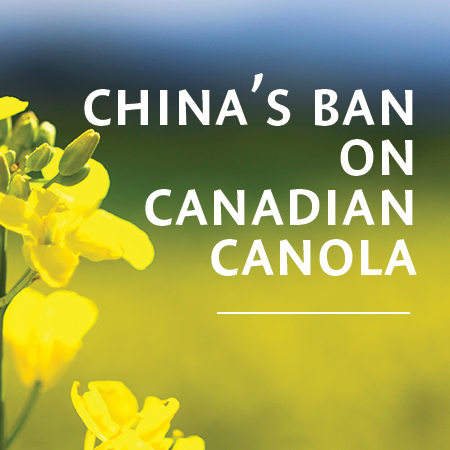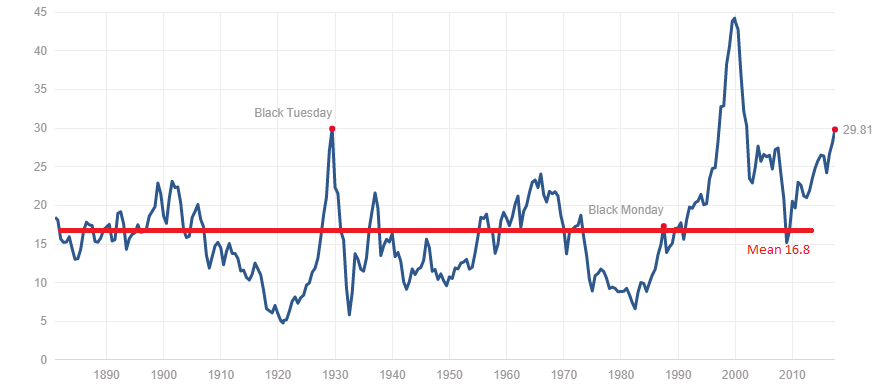Canola Trade Shift: China Seeks New Suppliers

Table of Contents
The global canola market is experiencing a significant shift, largely driven by China's search for new suppliers. For years, Canada was a dominant supplier of canola to China; however, recent geopolitical events and trade disputes have led to a dramatic decline in imports, forcing China to explore alternative sources. This article examines the causes of this trade shift, its impact on global markets, and the long-term implications for the canola industry. Understanding this dynamic is crucial for anyone involved in canola production, trading, or policy.
Declining Canola Imports from Canada:
Reasons for the Decreased Imports: Trade Tensions and Geopolitical Factors: The decline in Canadian canola imports to China is multifaceted. Trade disputes, including tariffs and accusations of contamination, have significantly hampered exports. This is further complicated by broader geopolitical concerns and China's focus on enhancing food security through diversification of its supply chains. Regulatory hurdles and phytosanitary issues have also played a crucial role, creating barriers for Canadian canola exports. The resulting uncertainty has impacted investment and long-term planning within the Canadian canola sector.
- Trade disputes and tariffs: Imposed tariffs have significantly increased the cost of Canadian canola in China, making it less competitive.
- Food security concerns: China aims to reduce dependence on any single supplier to ensure a reliable canola supply for its domestic needs and processing industries.
- Regulatory hurdles: Differing standards and regulations between Canada and China have created obstacles for Canadian exporters, leading to delays and increased costs.
- Phytosanitary concerns: Allegations of pest or disease contamination have led to temporary or partial bans on Canadian canola imports, disrupting trade flows.
The Economic Impact on Canadian Farmers and the Canola Industry: The reduced demand from China has had a severe impact on Canadian canola farmers, resulting in decreased revenue and increased uncertainty. The Canadian government has implemented various support measures to help mitigate the economic fallout, and farmers are actively exploring alternative export markets to lessen their dependence on China. This has spurred innovation in marketing and the exploration of value-added canola products.
- Decreased revenue for Canadian farmers: Reduced exports have led to lower prices and reduced income for producers, impacting farm profitability and investment.
- Governmental support programs: Financial assistance and market development initiatives have been launched to support farmers and help them transition to new markets.
- Diversification of export markets: Canadian farmers are actively seeking new buyers for their canola products, including expanding into Asian, European, and South American markets.
- Innovation in value-added products: The focus has shifted towards developing and marketing value-added canola products to increase profitability and market competitiveness.
China's Search for Alternative Canola Sources:
Increased Imports from Australia and Other Countries: China has increasingly turned to Australia to fill the gap left by reduced Canadian imports. Australia's canola production has expanded, and favorable trade relations have facilitated increased exports to China. Other countries, such as Ukraine, Russia, and France, are also emerging as potential alternative suppliers, each offering different advantages in terms of price, quality, and logistical considerations. This increased competition is reshaping the global canola landscape.
- Australia's increased canola exports: Australia has capitalized on the shift in demand, becoming a major canola supplier to China.
- Competitive pricing and quality: Various countries offer canola that competes on price and quality with Canada, forcing adjustments in pricing strategies.
- New trade agreements: Bilateral agreements are accelerating canola trade with alternative suppliers, highlighting the importance of international trade relations.
- Logistical considerations: Proximity to China and efficient transportation networks are key factors influencing supplier selection.
Impact on Global Canola Prices and Market Dynamics: The shift in China's sourcing strategy has created significant volatility in global canola prices. Supply and demand dynamics have been significantly altered, creating opportunities for some producing nations and challenges for others. This volatility highlights the interconnectedness of global agricultural markets.
- Global price fluctuations: Market volatility caused by shifts in supply and demand has impacted profitability for producers worldwide.
- Market share adjustments: Various canola-producing nations vie for market share in China and globally, leading to increased competition.
- New market opportunities: The shift opens up opportunities for both established and emerging canola producers to expand their market reach.
- Increased price transparency: The increased competition is leading to more transparent and competitive pricing in the global canola market.
Long-Term Implications for the Global Canola Market:
Restructuring of Global Supply Chains: This trade shift is leading to a restructuring of global canola supply chains. We're witnessing the emergence of new trade partnerships and a greater emphasis on diversification to minimize the risk associated with relying on a single major importer or exporter. Increased investments in canola production in previously less-significant regions are also expected. This diversification is crucial for long-term stability within the industry.
- New trade alliances: Countries are forging stronger trade relationships to secure canola supplies and reduce reliance on single sources.
- Supply chain diversification: Reducing reliance on single suppliers is a key priority for many nations to mitigate risks.
- Investment in canola production: Global investment in canola production is shifting to new regions, reflecting the changing market dynamics.
- Technological advancements: Innovation in canola production techniques and processing methods are contributing to increased efficiency and sustainability.
Geopolitical Influence on Agricultural Trade: Geopolitics plays a dominant role in shaping canola trade. Stable and predictable trade policies are crucial for fostering trust and encouraging investment in the agricultural sector. Furthermore, climate change and sustainability concerns are also shaping canola production and trade practices. These factors underscore the need for proactive and adaptive strategies within the industry.
- Geopolitical risk: Trade disputes and political instability significantly influence canola trade flows, highlighting the importance of stable international relations.
- Predictable trade policies: Stable international relations and consistent trade policies are essential for the canola industry's health and long-term growth.
- Climate change and sustainability: These issues are increasingly influencing canola farming practices and trade, emphasizing the need for sustainable agricultural practices.
- Consumer preferences: Growing consumer demand for sustainably produced food products is influencing canola production methods and trade practices.
Conclusion: Navigating the Canola Trade Shift: Adapting to China's New Sourcing Strategies – A Call to Action
The shift in China's canola sourcing presents both challenges and opportunities for producers and traders worldwide. Understanding the drivers behind this change, including trade disputes, food security concerns, and geopolitical factors, is crucial for adapting to the new market landscape. To stay competitive, countries need to focus on diversifying their export markets, improving supply chain resilience, and implementing sustainable agricultural practices. The future of the canola trade hinges on navigating these complex dynamics effectively. Stay informed on the latest developments in canola market trends and adapt your strategies accordingly to succeed in this evolving global landscape. Learn more about global canola production and its impact on international trade by following industry news and research.

Featured Posts
-
 Nicolas Cage Lawsuit Dismissed Son Weston Still Facing Claims
May 10, 2025
Nicolas Cage Lawsuit Dismissed Son Weston Still Facing Claims
May 10, 2025 -
 Fox News Jeanine Pirro In The Running To Be Dcs Top Prosecutor Under Trump
May 10, 2025
Fox News Jeanine Pirro In The Running To Be Dcs Top Prosecutor Under Trump
May 10, 2025 -
 Hertls Double Hat Trick Powers Golden Knights Victory Over Red Wings
May 10, 2025
Hertls Double Hat Trick Powers Golden Knights Victory Over Red Wings
May 10, 2025 -
 Olly Murs And A Beautiful Castle The Perfect Manchester Music Festival
May 10, 2025
Olly Murs And A Beautiful Castle The Perfect Manchester Music Festival
May 10, 2025 -
 Understanding High Stock Market Valuations Bof As Advice For Investors
May 10, 2025
Understanding High Stock Market Valuations Bof As Advice For Investors
May 10, 2025
